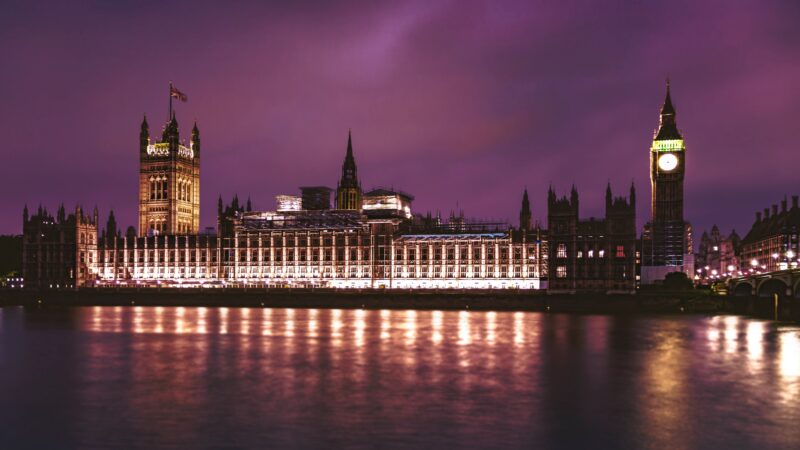Since the end of World War Two, the United States has received a heightened amount of criticism for how it has conducted itself abroad. Its interventionism and choices in which to act has thrown many a challenge to its own legitimacy and eligibility as a superpower. In the following short article, I will argue that at its core some of America’s interventionism is more a sign of a flawed but idealist attempt at helping the world.
From this, we can think of many circumstances in which America and its strategic choices to intervene have resulted in large scale failure. From Southeast Asia, to that of Latin America, we can be shown countless examples of either propping up corrupt dictatorial figures or even right-wing paramilitary death squads. This criticism has found itself not just from the proverbial left-wing but even from non-intervention right and libertarian circles. These failures have sadly detracted from the times America was arguably right to say it had a moral obligation to do something. Its critics have largely been correct with figures like Odd Arne Westad, Stephan Walt and Vincent Bevins, being the most notable at generating specific criticism towards American foreign policy failings, rather than the traditional critics like Noam Chomsky and Howard Zinn; commentators who prefer to use certain political arguments, while ignoring other uncomfortable and less than ideologically convenient truths about America.
As such, thirty years ago, we can be shown an example of America standing up for doing what is right and just, and being punished for it anyway. This was found by America directly after Desert Storm and the first Gulf War, turning its attention to that of Somalia and the Horn of Africa in 1993. Although remaining complex and disputed, what is known is that the nation of Somalia had largely fallen into a state of Civil War by the end of the 1980s. This conflict still continues to this day and still continues to displace many within the region at large. By the early 1990s, the nation remained a lawless place, in which differing power factions and warlords were fighting over what was left. It is this, for which many were exposed prior to American involvement.
American involvement came as a means to support and back up the United Nations which were being targeted within the country. From this involvement, America turned its attention to that of targeting those figures and warlords which had declared war on the United Nations personnel, such as Mohamed Farrah Aidid. As such, the mission to find him was that of Operation Gothic Serpent.
Out of Gothic Serpent, we enter what became the most famous and defining image of this conflict, the ‘Battle of Mogadishu’. The Battle of Mogadishu, fought in early October 1993, became famous through writer Mark Bowden’s book, ‘Black Hawk Down: A Story of Modern War’, for which Ridley Scott’s 2001 war movie was named. This battle became emblematic of America’s foreign policy failures, as it fought the toughest house to house fighting since the Tet Offensive within 1968’s Vietnam (something it would not match until the Second Battle of Fallujah in 2004). The outcome for the battle was the death of some twenty one Americans and nearly 300 Somalians. Dead American bodies were dragged naked through the streets and shown on CNN, the helicopters that had been shot down (four in total) became symbols of America’s failure and success for the Somalis. The sight of American Marines running back to base after being chased out the city by armed militia showed they were far from welcome.
How did America end up here? In the years prior, Somalia had descended into being a failed state, the outcome of which had been a complete disaster for all within its borders. Compounding this, a large famine had begun to grip the nations. The results of which meant that some 200,000-300,000 individuals had succumbed to starvation, in 1992. Alongside high rates of food aid looting and storage, the famine was used as a tool to wage war and genocide against others within the nation. There was no fixing this, there was little anyone could do to stop this nation from ripping itself apart at the seams. Out of this mess and the targeting of the United Nations personnel, America decided to support those on the ground. Within several years, it had all but left completely.
What we can learn from such events? Three decades after, has Somalia improved in any way? Well of course not. Has Afghanistan improved in any way since 2001? Of course not. As such, this attempt at fixing the problem was to only inflame the situation and result in the deaths of more individuals. More than just the US State Department, the entire world must realise its problems cannot be solved by sacrificing the lives of white boys from Arkansas and Ohio.
One might begin to wonder if the Somalian Civil War and its aftermath had never occurred, whether America might have also seen itself as being politically able and morally obliged to intervene in other African nations that also went through genocide in the subsequent years, such as Rwanda and Burundi. In this sense, its attempts are more than flawed but tragic. Imagine if Vietnam had never occurred, if America would have then had the stomach to stop the Cambodian Genocide from occurring.
Heavy is the head that wears the crown, some might say. I would personally lean towards the viewpoint that America’s intervention into Somalia during this time is more indicative of a wider tragic sense of action that has haunted America since the end of World War Two. In many ways, America is damned if it does and damned if it doesn’t. It is forced to choose between fickle condemnation and disgrace its reputation as a superpower or military action, the latter of which produces images of dead soldiers being dragged naked through the streets, leading many to ask the question: what was it all for?



